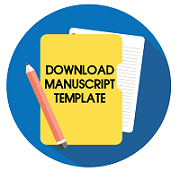Pemahaman Konsep Fluida Statis Siswa SMA dan Kesulitan yang Dialami
DOI:
https://doi.org/10.21831/jpms.v7i1.22380Abstrak
Penelitian ini bertujuan untuk mengkaji pemahaman konsep fisika siswa pada salah satu SMA di kota Malang pada materi gaya apung dan prinsip Archimedes. Jenis penelitian ini adalah penelitian deskriptif. Sampel dari penelitian ini terdiri dari 34 siswa pada kelas X. Instrumen yang digunakan berupa soal esai berjumlah empat butir soal. Hasil penelitian menunjukkan bahwa rata-rata kemampuan pemahaman konsep siswa mencapai 63,47% dan tergolong baik. Kesulitan yang dialami siswa terletak pada konsep gaya apung dalam keadaan benda melayang. Perlu upaya untuk guna meningkatkan pemahaman konsep fisika siswa.
Referensi
Anderson, L. W., & Bloom, B. S. (2001). A taxonomy for learning, teaching, and assessing: A revision of Bloom's taxonomy of educational objectives. Longman.
Anggara, B., Priatna, N., & Juandi, D. (2018). Learning difficulties of senior high school students based on probability understanding levels. Journal of Physics: Conference Series, 1013(1), 012116.
Arikunto, S. (2006). Prosedur penelitian suatu pendekatan praktik. Rineka Cipta.
Cakir, M. (2008). Constructivist approaches to learning in science and their implications for science pedagogy: A literature review. International Journal of Environmental and Science Education, 3(4), 193-206.
Desfitri, R. (2016). In-service teachers' understanding on the concept of limits and derivatives and the way they deliver the concepts to their high school students. Journal of Physics: Conference Series, 693(1), 012016.
Eshach, H. (2014). Development of a student-centered instrument to assess middle school students' conceptual understanding of sound. Physical Review Special Topics-Physics Education Research, 10(1), 010102.
Gao, Y., Zhai, X., Andersson, B., Zeng, P., & Xin, T. (2018). Developing a Learning progression of buoyancy to model conceptual change: A latent class and rule space model analysis. Research in Science Education, 8(1), 1-20.
Hasan, M., & Ismayani, A. (2018). Assessing conceptual and algorithmic understanding of students in senior high school. Journal of Physics: Conference Series, 1088(1), 012092.
Jannah, A. N., Yuliati, L., & Parno, P. (2016). Penguasaan konsep dan kemampuan bertanya siswa pada materi hukum Newton melalui pembelajaran inquiry lesson dengan strategi Lbq. Jurnal Pendidikan: Teori, Penelitian, dan Pengembangan, 1(3), 409-420.
Kautz, C. H., Heron, P. R., Loverude, M. E., & McDermott, L. C. (2005). Student understanding of the ideal gas law, Part I: A macroscopic perspective. American Journal of Physics, 73(11), 1055-1063.
Mufit, F., Festiyed, F., Fauzan, A., & Lufri, L. (2018). Impact of learning model based on cognitive conflict toward student's conceptual understanding. IOP Conference Series: Materials Science and Engineering, 335(1), 012072.
Nurhuda, T., Rusdiana, D., & Setiawan, W. (2017). Analyzing students' level of understanding on kinetic theory of gases. Journal of Physics: Conference Series, 812(1), 012105.
Sofiuddin, M. B., Kusairi, S., & Sutopo, S. (2018). Analisis penguasaan konsep siswa pada materi fluida statis. Jurnal Pendidikan: Teori, Penelitian, dan Pengembangan, 3(7), 955-961.
Suarez, A., Kahan, S., Zavala, G., & Marti, A. C. (2017). Students' conceptual difficulties in hydrodynamics. Physical Review Physics Education Research, 13(2), 020132.
Unduhan
Diterbitkan
Cara Mengutip
Terbitan
Bagian
Lisensi
Jurnal Pendidikan Matematika dan Sains allows readers to read, download, copy, distribute, print, search, or link to its articles' full texts and allows readers to use them for any other lawful purpose. The journal allows the author(s) to hold the copyright without restrictions. Finally, the journal allows the author(s) to retain publishing rights without restrictions
- Authors are allowed to archive their submitted article in an open access repository
- Authors are allowed to archive the final published article in an open access repository with an acknowledgment of its initial publication in this journal

This work is licensed under a Creative Commons Attribution-ShareAlike 4.0 Generic License.





